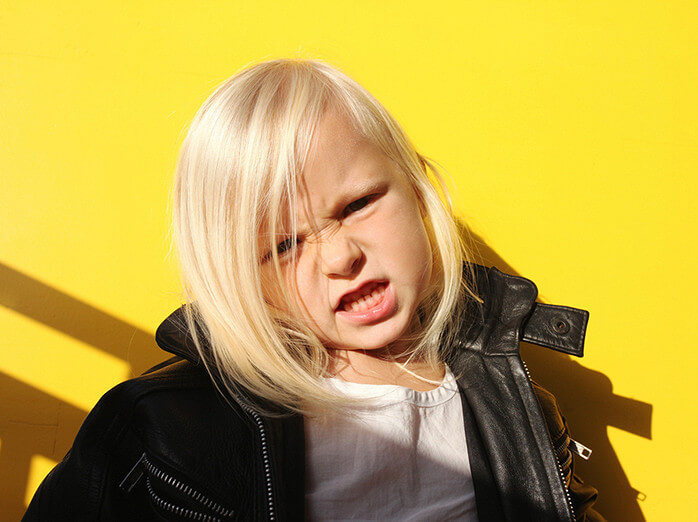3 Reasons Why A Parent Let Kids Bully Them

After listening to many bullied parents’ stories in my psychotherapy office, I began to recognize many shared experiences.
Although bullied parents come from various cultures and communities, I’ve identified the three most common scenarios that enable kids to bully their parents.
The parents most likely to be bullied by their kids are:
- Parents who were bullied by their own parents.
- Parents who had absent or neglectful parents.
- Narcissistic parents.
1. A Parent Who Was Bullied By Their Own Parent
When I examined the personal histories of parents whose children bully them, I discovered that these parents tended to have been bullied by their parents as well. The culture of bullying is often passed on from one generation to the next. Parents who were bullied as children remain victims of bullying, only now their children are the perpetrators.
Parents who were bullied by their parents may overcompensate with their own children by being too permissive. For example, adults who grow up in homes with overly strict parents tend to be very liberal with their kids. They set out to undo their own history by giving their children the freedom that they were denied. These parents often vow in their youth, “When I grow up, I won’t treat my kids the way I was treated.”
This backlash against the authoritarian parenting of the past, however, is fueling the bullied-parent dilemma many parents find themselves in today. For example:
- If your parents were dominating, you might overcompensate by being too accommodating and permissive.
- If your parents were critical, you might strive to be more of a friend than a parent to your child.
- If your parents were inattentive, you might smother your kid with attention and become overly involved in his life.
Don’t fret: Bullied parents’ hearts are in the right place. They want their kids to have a better childhood than they did, but their overreaching effort to undo the pain of their own history prevents them from providing the leadership their kids need for healthy social and emotional development.
These parents tend to avoid decisions that may anger or disappoint their children. They begin to fear their child’s temper, just as they feared their parents’. Soon they stop thinking with their adult mind and start acting more like their childhood selves. As a result, parents who were bullied by their parents experience waves of personal anxiety and indecisiveness. The pattern of trauma from their childhood is reawakened, and the emotional abuse they suffered as children impact the choices they make as mothers or fathers.
2. A Parent Who Had An Absent or Neglectful Parent
Adults who grow up with an absent or neglectful parent have a particularly difficult time being parents because they have no parental model to internalize. Even if they had a mother or father, they felt parentless.
Unsurprisingly, when these people become parents, they find it hard to parent. With no parenting model to follow, or oppose, they are lost and overwhelmed in their new role. Desperate, they defer decisions and avoid making unpopular choices. They may even shift the burden of parenting onto the shoulders of their own kids, letting them make decisions for themselves. While kids naturally jump at the chance to seize leadership from their parents, they are usually completely unprepared to manage themselves. They can’t structure their day, set a schedule, or plan for their future. Without the guiding hand of a confident parent, it’s only a matter of time before they grow frustrated and abusive; no kid wants to parent himself.
3. A Narcissistic Parent
Narcissistic parents are often hard to spot. They attend school events and parent-teacher conferences. They throw birthday parties. From a distance, they seem ideal parents. So why are they bullied by their children?
Take a closer look and you’ll see the problem hiding in plain sight: They are terrible listeners, and conversation monopolizers. Incessantly self-referential, rather than respecting and promoting their kids’ individuality, they try to make their children mini-versions of themselves. For kids, nothing is more enraging than not being recognized by a parent.
Children of narcissists frequently turn to bullying in an effort to break through a parent’s self-absorption. But narcissistic parents are too wrapped up in themselves to identify with their kids. They steer conversations back to themselves, fixate on their own childhoods, tell endless stories about the past, or force their children to endure tiresome yarns about their own achievements.
Narcissistic parents don’t live in the moment, which creates a profound sense of emotional deprivation in children that fuels bullying. Every child has three basic emotional needs—to be listened to, to be recognized, and to be validated. Narcissistic parents are too self-absorbed to meet any of these needs.
When adolescence hits and kids begin to claim their own separate ideas and identities, narcissistic parents often see this as a betrayal. Conflicts begin to escalate the moment their children try to define themselves as separate and different.
Sadly, most relationships between a narcissistic parent and a bullying kid end in estrangement. Unless the parent changes his or her ways, the relationship is doomed.
Breaking the Pattern
These three broad categories—parents who were bullied by their own parents, parents who had absent or neglectful parents, and narcissistic parents—are presented as a way to process and examine your own upbringing. Parents are much more complex than the snapshot histories presented here. But if you find yourself nodding in recognition, identifying with the parent types, or recalling unhappy events from your past, it’s time to consider how your childhood history may shape the parenting choices you make today.

